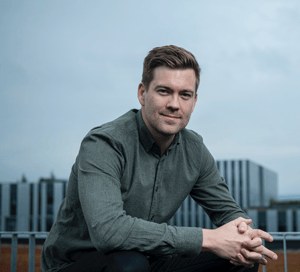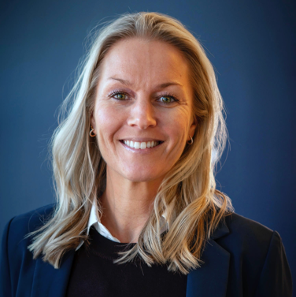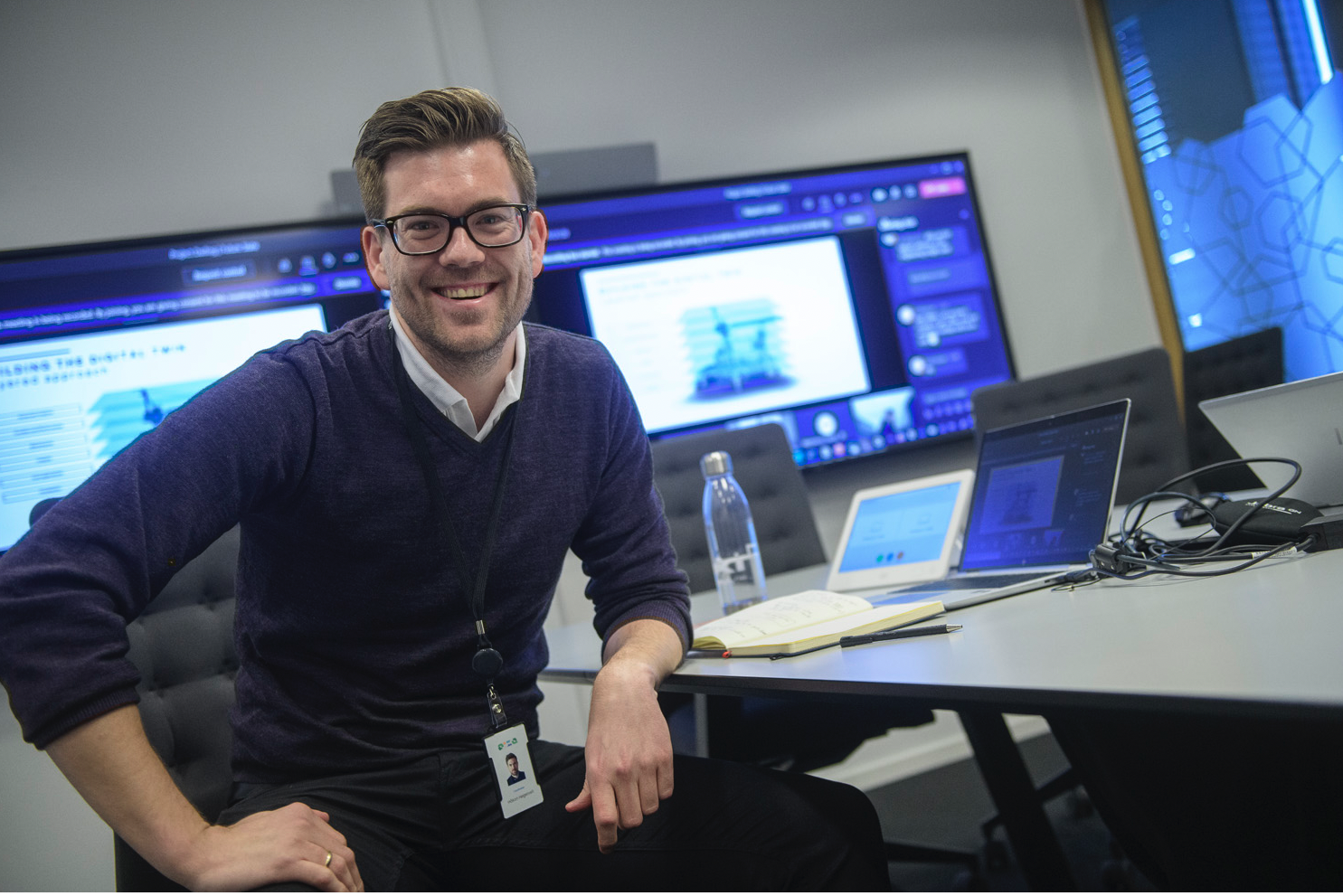Aize COO shares an economist’s perspective on the value of sustainability.
As an economist at his core, Aize COO Håkon Høgetveit used to be skeptical when companies claimed the ‘sustainability’ of their business or offerings. It was a word that was all-too-easily injected into websites, press releases and branding material simply to soothe stakeholder demands. For Høgetveit, sustainability maintained its status as an overused buzzword until he saw it ingrained in the business operations - breaking free from the confines of the sustainability department alone.
Sustainability reveals its true value when it translates into a company’s ability to influence the way of working for traditional, capital-intensive industries, he says. Høgetveit believes that it is at the crossroads where traditional industries, software, and the forces of the capital markets meet, where the real ‘sustainable’ difference can be made.
 Aize is right in the middle of this mix, according to Høgetveit, working side-by-side with both the oil and gas companies and their service providers, along with the renewables industry, to make their businesses as efficient as possible. In simple terms, efficiency, for most of these industries, equates to reduced cost and execution time, as well as less waste and lower emissions – all of which can positively impact the bottom line. Høgetveit says that for him, this is the very definition of a sustainable business.
Aize is right in the middle of this mix, according to Høgetveit, working side-by-side with both the oil and gas companies and their service providers, along with the renewables industry, to make their businesses as efficient as possible. In simple terms, efficiency, for most of these industries, equates to reduced cost and execution time, as well as less waste and lower emissions – all of which can positively impact the bottom line. Høgetveit says that for him, this is the very definition of a sustainable business.
Aize is a software company. How can software help achieve sustainable outcomes?
HH: There are the obvious ways, such as software related to emissions control and the software solutions that can transform data to improve decision-making and the ability to carry out complex operations. But most importantly, we create software that enables our customers to run their projects and operations in the most efficient manner. The main beneficiary will be the projects with the lowest margins, such as the projects within renewables that are today subsidized.
The economist in me even sees the direct link between reducing the costs of oil projects and the government’s ability to reallocate funding to other projects within the renewables space – particularly in Norway, where the state covers a substantial share of the development costs.
So, you’re saying that by saving money on oil and gas projects, companies can fuel the energy transition to renewables?
HH: You have to influence how traditional, capital-intensive industries work in order to make a real difference. To craft the ‘industry worker of the future’, we need to work with these industries and help to enable the transition. We need to take the competences and learning, and yes, perhaps some of the funding from oil and gas, and bring it with us in the eventual transition to new energy sources. Renewables is the future, and we need to bring the best of the traditional industries, including the vast amount of knowledge and competence, with us into it.
Is Aize actively working with renewables industry now?
HH: This is where our equity is going in the future. We will build on our existing products and projects to create software that can improve the way renewable projects are executed and run. This will perhaps be the most important pillar of the company's strategy in the years to come.
What’s the company’s overall aim when it comes to sustainability?
HH: In Aize, we aim to enable traditional industries in their shift towards developing renewables projects, and by doing this, we hope to accelerate the energy transition. If we can build software that makes these industries competitive through lower margin renewables projects, and if we can get the employees from the oil yards around the world to build offshore wind farms instead of oil platforms, then we have made a real ‘sustainable’ difference. It all starts with improving efficiency and reducing the costs of building and operating complex assets. And ends with true transition.
Are customers asking for sustainable solutions or is this something that Aize is bringing to the table (to increase awareness)?
HH: Both. It has to be ingrained in the business model itself, in order to have meaning. In 2021, if your solutions are not ‘sustainable’, then I would say they are not really solutions.
Does this motivate you on a personal level?
HH: I find motivation in working towards the big, but not quite tangible yet goals that can only be resolved by thinking radically different. Coupled with the values we live by at Aize, it is more than enough to get me out of bed in the morning.
If Aize sounds like a place you want to work, reach out to find out how you can make an impact with us!

Post written by Trine Bratt Stølsnes
Trine is the Director and Head of Marketing at Aize, where she combines her passion for marketing strategy with the challenge of shaping how digital twin technology transforms the energy industry. With years of experience in B2B marketing, she is dedicated to driving meaningful change through effective marketing and communication.
Stay in the loop
I’d like to sign up to Aize newsletter





